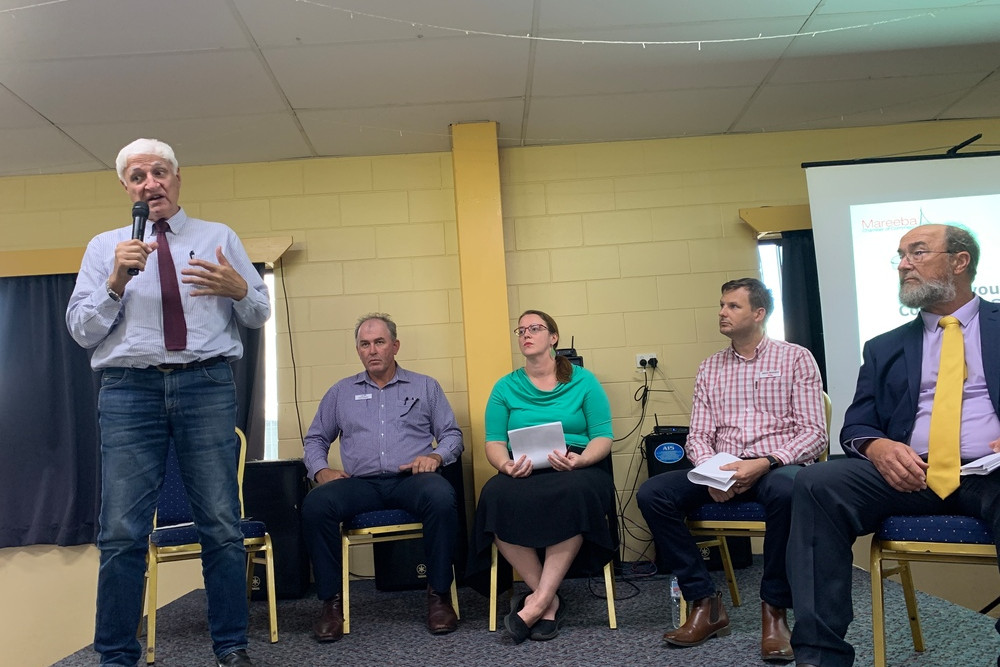General News
5 May, 2022
Candidates Spruik policies at debate
PROMISES, policies and plenty of questions about a range of issues affecting the Kennedy electorate were all explored at Mareeba Chamber of Commerce’s debate luncheon on Thursday as candidates vying to become the next Federal representative did their best to win over attendees.

PROMISES, policies and plenty of questions about a range of issues affecting the Kennedy electorate were all explored at Mareeba Chamber of Commerce’s debate luncheon on Thursday as candidates vying to become the next Federal representative did their best to win over attendees.
Five of the six candidates attended to convince the audience why they should be elected, with questions on topics ranging from the Kuranda Range Road and telecommunications to health services and housing.
Incumbent Bob Katter told the crowd he would stand on his record of delivering to the electorate, citing $2 billion for the Bruce Highway upgrade from Gordonvale to Edmonton as a major project he managed to get funding for.
He believes that with many voters turning their back on the major parties, he could very well hold the balance of power in the next Federal Parliament.
“If we get that power and that lies with the cross-benchers, I have found that you can work with them (other independents and minor parties) to get things done,” he said.
LNP’s Bryce Macdonald, who has a long background in the transport industry, said he would be a “voice that matters” for the region in Canberra.
He said improving roads would be a priority for him, recognising the critical need to have good transport access for produce to get through to southern markets, but also health services and support for childcare facilities because regions could not grow unless adequate services were provided.
Green candidate Jennifer Cox called for major changes to donations to political parties, claiming that corporate donations were “currying favour with the people who could significantly help their businesses” such as tax cuts, subsidies, free infrastructure, and contracts.
She said it was a “closed system” that enabled the same political parties to be elected and was testament to the “degrading of democracy”.
Ms Cox said the Greens had “15 big ideas” including building one million houses and taxing “all the billionaires” to pay for them, make university courses free, extend Medicare to cover dental and mental health, and a national transition to renewable energies.
United Australia Party’s Peter Campion said he had been prompted to run after witnessing governments breach the Constitution and the Universal Declaration of Human Rights to which Australia was a signatory to, with border closures, lockdowns, and mask and vaccine mandates as a result of the “so-called pandemic” – and run up more than a trillion dollars of debt in the meantime.
“We are the only party that has a plan to pay off that debt, put money back into regions and return Australia to freedom and prosperity.
“And the UAP will introduce a Bill of Rights so this never happens again,” he said.
Labor’s Jason Brandon said he would fight for better services for regional communities who were “relegated with second class services” in key areas such as education, health care, power, communications and housing.
“It’s time to address these issue and stop pretending there’s nothing wrong,” he said.
His pledges included creating 450,000 free TAFE places to build skilled workers, creating 20,000 new university places, training cadets, apprentices’ and trainees, restoring money for tele-health care, opening 50 urgent Medicare clinics to allow people to access GPs who bulk bill and reduce pressure on hospitals, boosting services at aged care facilities, and lowering power prices by upgrading electricity grids.


